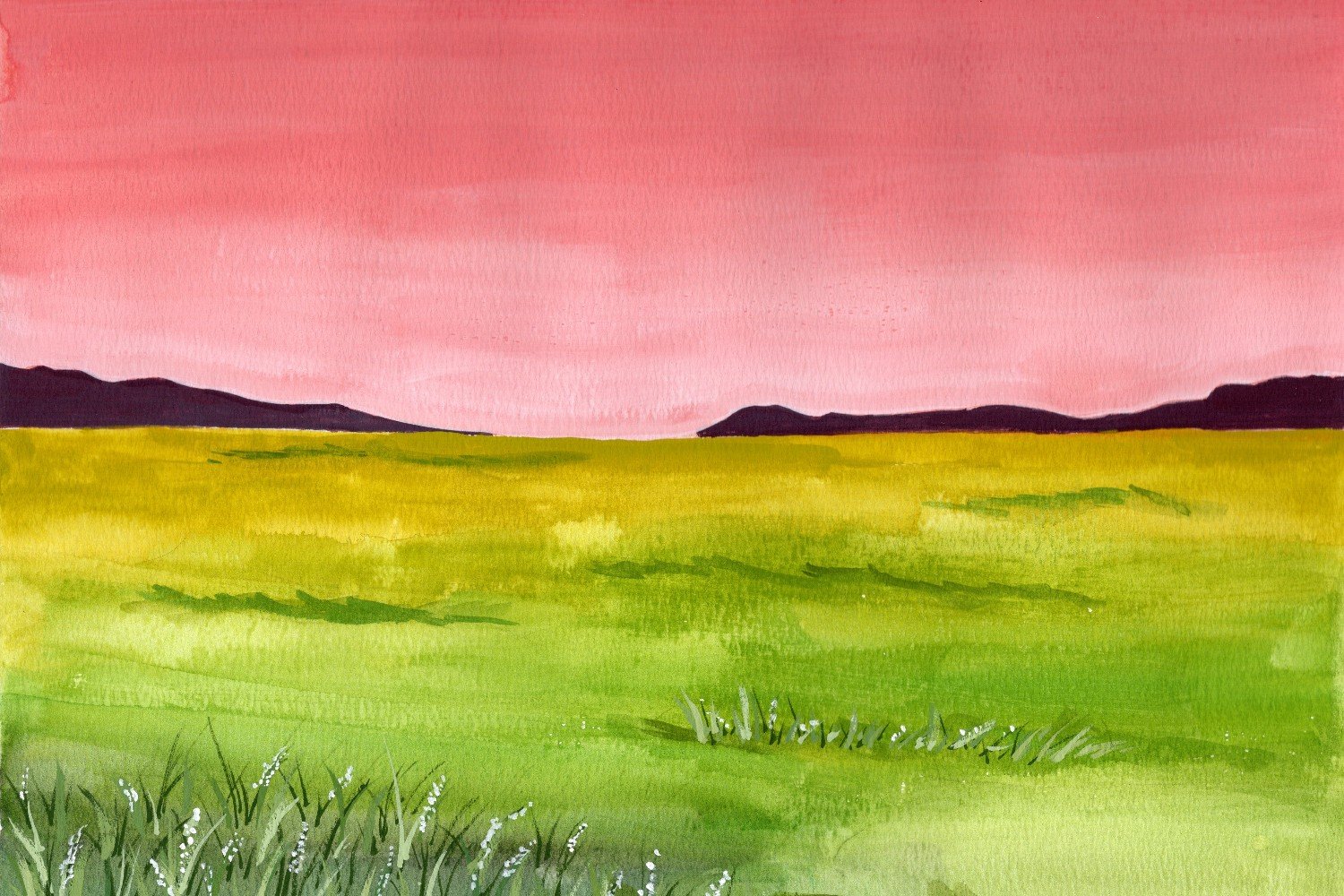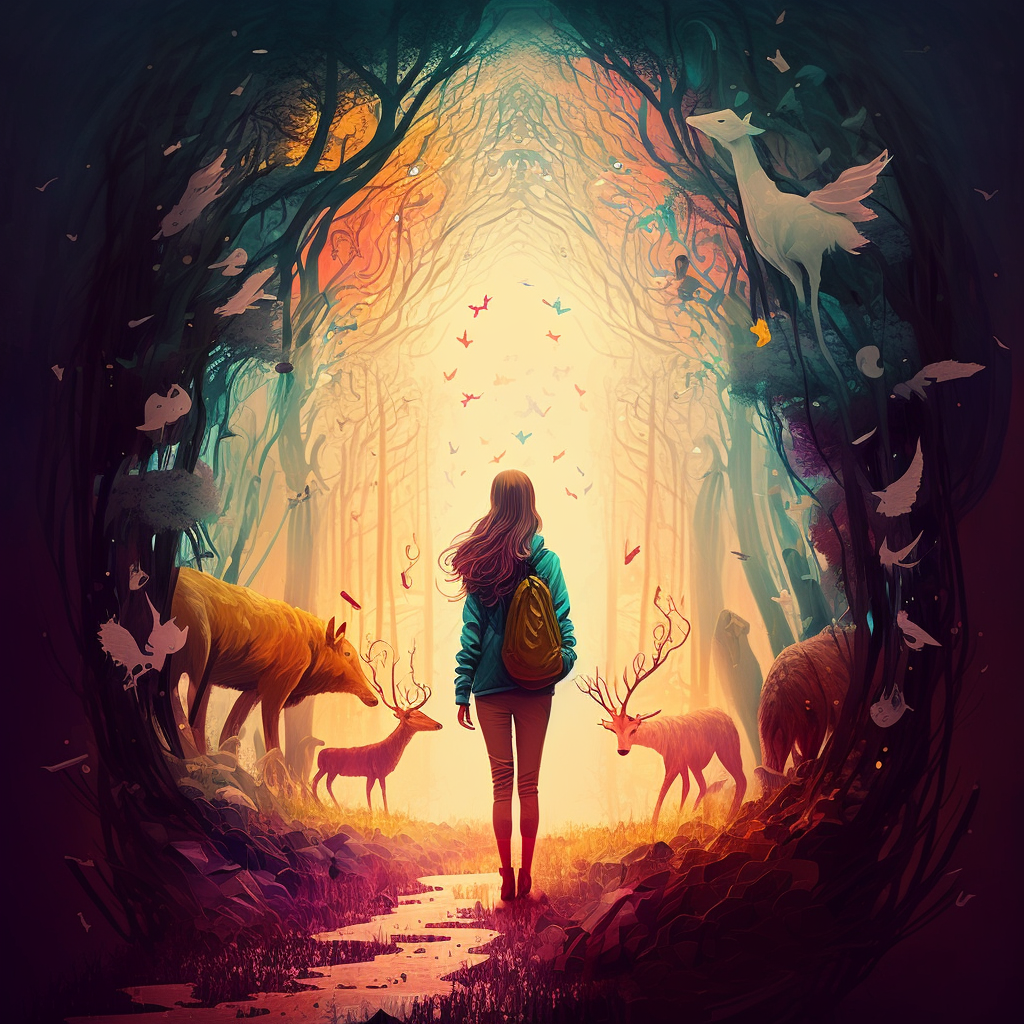My Best Advice for Writing Anxiety
Created with Midjourney AI
After writing about bringing joy back to my writing, I fell into my old patterns of anxiety and overthinking again. Well, that figures. My old habits occasionally return because they are ingrained neural pathways that will never disappear entirely, and it takes effort to practice what I know when they return. When the anxiety returned this time, I tried to suppress it initially, but it didn’t work and led to my neck going out for a week.
The anxiety only eased up in the last few days when I reminded myself of one of the best writing/creativity advice I've ever received: be mediocre.
I know-—who wants to be a middle-of-the-road writer? But I felt so relieved when I remembered it. The problem with trying to be good is that we put our attention on what other people like rather than what we want to say, and that can stop our creative flow because there are too many options for what “good” is when it comes to writing and other forms of art.
I know that when I try to be "good" at writing, I question my impulses. I write something down and immediately criticize it. I worry about how good my ideas are and whether my writing is original enough. If I even get the words out, they feel stiff and awkward. People express themselves in a million different ways, and trying to be "good" implies that there are only a few ways one's expression is acceptable. We have awards ceremonies and contests that tell everybody, "This is good art." But works labeled as "good" art don't resonate with everyone, and even the "worst" art has its followers. Art is more about resonance than any objective measurement of "good" or "bad."
So when I'm trying to be good, it's a way of pleasing others instead of listening to myself. So I end up falling into comparison and paralysis.
On the other hand, when I let myself be mediocre, I stop worrying about what other people think. I no longer have to "try" to be anything--I can be myself and write whatever pleases me. Ironically, the writing often ends up being better than when I worried about being good.
Creativity and risk-taking
Creativity is about making something new, combining ideas in ways that haven't been done before. Sometimes we create something that resonates with others and is deemed good. Other times, we make flops. Creativity comes with risk, and the more creative, the riskier it usually is. If we fear not being "good enough,” we tend to stick to what we know or what people have liked in the past. In short, we stop being creative and repeat what has been done.
Being mediocre means not being afraid of taking risks. Sometimes an article idea goes nowhere. Sometimes what I write won't resonate with people. I have to be okay with those things to be creative. From another perspective, being mediocre is the opposite of perfectionism, where we try to protect ourselves from criticism by being beyond fault. Well, that'll never happen. If I publish something and the results aren't what I expected, it's something I can learn from. But if I stopped myself before I started, I would never be able to move forward.
"Being good" as a desire for validation
Being mediocre as writing advice isn't about not improving my work. But improving my writing is more fun when I’m not identified with it and see it as a validation of who I am. That's when trying to be good hurts--when I equate my writing with my self-worth.
Instead, being mediocre is a thought exercise that helps me focus on what I want to say rather than how others might react. It gets me into a state of creative flow, where I can get a first draft out. The time to critique and refine can come later.
So if you ever feel stuck in your writing, tell yourself it's okay to be mediocre. Embrace sucking at it. Aspire to be a shitty creator. And free yourself from the tyranny of being good.
Thanks for reading! I’d love to hear what thoughts it might have provoked for you. Let me know down below!






























